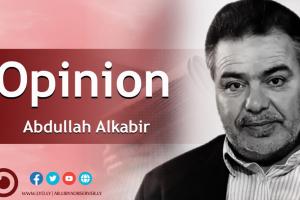By Abdullah Alkabir, Libyan political writer and commentator
The race to grab the election file

The UN Security Council's statement supporting UN envoy’s initiative was slightly delayed, but it was finally released confirming Bathily’s plan to form a High-Level Panel for Elections, in order to finalize the outcome of the House of Representatives (HoR) and the High Council of State (HCS), regarding the legal basis for elections.
Release of the statement with consent of all Security Council members, without objection of neither Russia nor France, means the wording of the statement was acceptable and satisfactory to all. SC Members must reach consensus despite their different positions and conflicting interests, especially between the US and Britain on the one hand, and Russia on the other, as well as the French position which is different from the rest of its Western allies, in order for the Security Council not to lose its role in addressing international issues. This necessitates that Security Council members reach a minimum degree of consensus, at the very least, before voting to avoid the veto.
The statement was disappointing for both the HoR and the HCS- except for some representatives and members of both houses- and for political and military parties that do not want elections, and seek to extend the transitional period, as the statement directly provides for elections.
It neither referred to the unification of the executive authority nor the formation of a new government, or unification of institutions and the naming of new personalities for sovereign positions, which are the starting point for the presidents of the two houses, as well as for some political figures, who organized several forums to market a proposal for a political solution that guarantees success of elections, by forming a unified government to supervise them.
However, such proposal did not resonate with the effective international actors, who realize that opening this door means continuing obstruction, as forming a new government will not be easy in light of this fierce competition, and then the path to elections will be difficult, because any new government will not differ from its predecessors in seizing the opportunity to continue in power as long as possible.
The race between the HoR and HCS alliance on the one hand, and the UN envoy and his initiative on the other, is still at its early stage. The two chambers seek to continue their dominance over the election file, and to bridge any gap that other parties may infiltrate through. Therefore, they rushed to submit the constitutional amendment, and they are now working on finalizing election laws through a joint committee, in a bid to abort Bathily’s plan, and to abrogate the issue of the High-Level Panel for Elections. Meanwhile, the latter (Bathily) continues on his way towards activating his initiative through several meetings, with active local and regional parties. The last of which brought together leaders of security services and groups with the Military Committee, to discuss security plans to secure the elections.
In any case, it will be difficult for the two chambers to pass their vision in full, because consensus on the Constitutional Amendment No. 13 has not been achieved at the HCS, and therefore it may not access the joint committee on election laws, due to the presence of a large bloc objecting to the constitutional amendment, and even if it participated in the work of the committee it may not agree on controversial issues, so it is not possible to thwart the Bathily’s plan, which will start from where the two councils end. Even what the international community has accepted from them, considering it a progress that can be built upon, the HLPE may amend, and delete. The clause of the 13th constitutional amendment, that abrogates the elections altogether, if the presidential elections fail, cannot be accepted, because the cancellation of the elections, and prolonging the current entities would shatter the hopes for change, and might prompt reoccurrence of armed conflict.
Visits by US officials to Libya are endless, as elections are a phasal goal that leads to curtailing the Russian influence in Libya as far as the US administration is concerned, and in light of this insistence, with full support for Bathily’s initiative, it will be difficult for HoR and HCS to keep the keys to the political solution in their hands. Then, the race will end by entrusting the finalization of the path towards elections to the High-Level Panel for Elections, under direct supervision of the UN mission.
Disclaimer: The views and opinions expressed in this article are those of the writer, and do not necessarily reflect those of the Libya Observer



